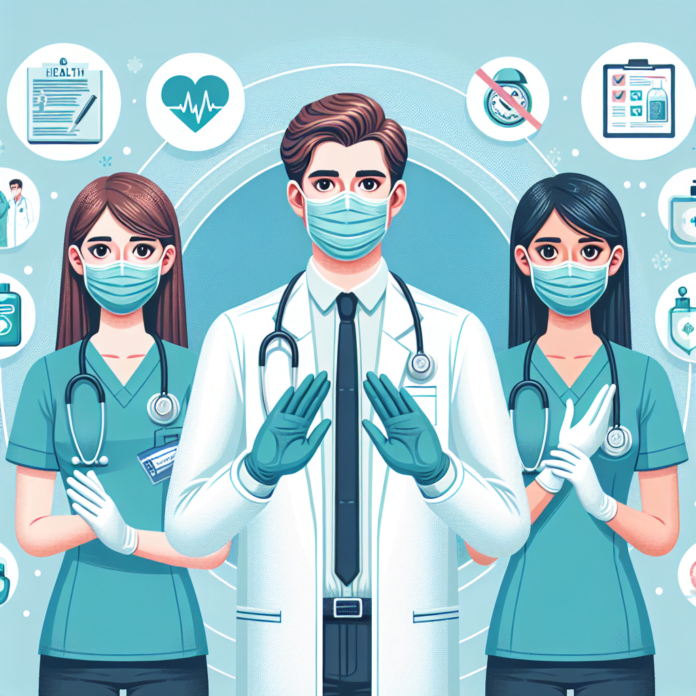In today’s fast-paced world, we often overlook the importance of maintaining good health in our pursuit of career growth and personal ambitions. This negligence primarily results from the common notion of considering healthcare as a response rather than a preventive measure. While medical treatment can definitely cure you of several ailments, it is better, easier, and cheaper to stay away from them in the first place. This is where the importance of health precautions come into the picture. Health precautions are procedures, activities or habits that a person can adopt to reduce the risk of developing certain medical conditions. As the old adage goes, prevention is better than cure, and nothing could be truer, especially in our modern era filled with a myriad of health hazards at every nook and corner.
Several research studies have shown that maintaining a healthy lifestyle and making informed decisions can prevent up to 80% of heart diseases, 90% of type-2 diabetes, and 70% of stroke incidents. This reality triumphantly showcases the significance of health precautions as a mechanism for warding off diseases.
Understanding The Importance of Health Precautions
Health precautions involve maintaining regular physical activity, balanced diet, avoiding alcohol and tobacco, proper rest, stress management, and regular medical check-ups. These precautions not only prevent diseases but also contribute to a healthy and fulfilling life that enables you to enjoy every moment to the fullest without worrying about sudden sickness or chronic illnesses. Taking precautions can also help in early diagnosis of the disease, which in turn, can increase the chances of getting cured.
Preventing Disease and Illness through Health Precautions
Good hygiene practices are one of the primary precautionary methods to avoid contagious or infectious diseases. Handwashing, for instance, can limit the scope of diseases like diarrhea, influenza, or other respiratory infections. Similarly, vaccination is an essential health precaution to prevent several life-threatening diseases.
Besides, a healthy diet filled with various nutrients can help boost immunity and, therefore, safeguard you from numerous ailments. Consuming sufficient vitamins, minerals, and antioxidants can ward off diseases and also speeds up recovery. Mitigating sugary and fatty food along with regular physical activities will likewise help prevent obesity, which is linked to a spectrum of chronic diseases.
Regular checkups and screenings are yet another precautionary measure that can diagnose problems even before the symptoms are visible. For instance, regular check-ups can detect irregularities like high blood pressure, elevated sugar levels, or malignant cells, which may be a precursor to severe health disorders, enabling early intervention and prevent severity.
Tackling Mental Health through Precautions
Health precautions are not limited to physical health alone but extend to mental health as well. At a time when the world is increasingly acknowledging the importance of mental health, taking precautions is crucial to keep mental ailments at bay.
Indulging in recreational activities, maintaining a balanced work-life setup, socializing, meditating, pursuing hobbies are effective preventive measures against anxiety, depression, and stress-related disorders. Sleep is another essential component in maintaining mental health. A minimum of 7-8 hours of sleep is recommended for adults.
The Role of Education in Health Precautions
The first step towards taking health precautions is being aware of what is essential for maintaining good health. Knowing how your body functions, what nutrition it needs, what habits can harm it, and how to avoid health risks can help a great deal in taking preventive measures. The more educated you are about your health, the better you can take care of it.
Conclusion
In conclusion, health precautions don’t just serve to prevent diseases; they enable you to live a longer, healthier, and happier life. Equally importantly, it relieves the overburdened healthcare systems globally. Taking control of your health by adopting preventive measures benefit not just individuals, but society and the healthcare system as a whole. It’s high time we shift our focus from a disease-centered model to a prevention-centered approach.
Frequently Asked Questions (FAQs)
- What are health precautions?
- Health precautions refer to practices or behaviors aimed at preventing diseases and maintaining overall health. This includes healthy eating, regular exercise, annual check-ups, stress management, and proper rest.
- Why are health precautions crucial?
- Health precautions are crucial as they help prevent diseases before they occur, which is more comfortable and less expensive than treating them. They also contribute to a healthier and more fulfilling life.
- How can I incorporate health precautions into my daily routine?
- Start by making small changes such as incorporating more fruits and vegetables into your diet, exercising regularly, getting enough sleep, and scheduling regular medical check-ups. Gradually, these small steps can become habits forming a healthy lifestyle.
- Can health precautions guarantee disease prevention?
- While health precautions significantly reduce the risk of many illnesses, they cannot guarantee absolute disease prevention. But, they can certainly help detect diseases early, making the treatment easier and less complicated.

